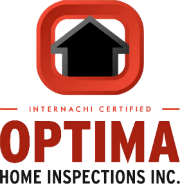Buying a home is an exciting adventure, especially in the picturesque Hudson Valley. But before you take the plunge, it’s crucial to understand the importance of property inspections. In this blog, we’ll uncover everything you need to know about Hudson Valley property inspections and how they can help you make an informed decision.
What is a Property Inspection?
A property inspection is a detailed examination of a home’s condition, typically conducted by a qualified inspector. This process uncovers any potential issues, providing valuable insights into the home’s structural integrity and the state of its major systems. Inspectors check various aspects such as the roof, foundation, plumbing, and electrical systems, ensuring each component meets safety and quality standards. Think of an inspection as a home’s health check-up; it tells you not only what’s working well but also points out areas that may need attention.
For home buyers, understanding what a property inspection entails can help demystify the process and set clear expectations. The goal is to identify potential red flags that could affect your investment or require costly repairs. While an inspection doesn’t guarantee that no future issues will arise, it does offer a comprehensive snapshot of the property’s current state. Knowing this, you can make an informed decision about whether a particular home will be a sound investment.
The Unique Challenges of Hudson Valley Homes
The Hudson Valley boasts a diverse collection of properties, from historical homes to new builds. Each type comes with its own set of challenges during inspection, such as older plumbing systems or unique architectural features. With historic homes, inspectors often encounter outdated wiring and plumbing, issues with insulation, or wear and tear on original fixtures. These features add charm and character to a home, but they can also complicate the inspection process.
On the other hand, newer homes in the Hudson Valley are not immune to issues. Modern constructions might face challenges related to the latest building materials or cutting-edge systems that require specific expertise during inspection. Regional factors also play a role. The area’s climate means inspectors in the Hudson Valley keep a keen eye out for weather-related wear, such as roof damage from snow or moisture issues in basements. These unique challenges highlight the importance of selecting an inspector familiar with the region.
Key Areas Covered During Inspections
During a Hudson Valley property inspection, inspectors focus on several key areas including the roof, foundation, plumbing, electrical systems, and HVAC. Understanding these components helps buyers identify potential red flags and plan for necessary repairs. The roof is inspected for leaks, damaged shingles, and proper drainage, as these issues can lead to significant expenses if unchecked.
The foundation and structural elements are scrutinized for cracks or signs of settling, which could indicate more severe underlying problems. Inspectors check the plumbing system for leaks and ensure everything is up to code. In terms of electrical systems, they verify circuit safety and test to ensure all fixtures and components are in working order. Lastly, heating, ventilation, and air conditioning units are tested to ensure they operate efficiently and safely. Each of these areas can impact both the immediate comfort and long-term value of the home.
Choosing the Right Inspector
Selecting a qualified inspector is crucial. Look for professionals with experience in the Hudson Valley region, solid credentials, and positive reviews. A great inspector will provide a thorough report and answer any questions you may have. Checking references and reviewing testimonials from past clients can help gauge the quality of service you might expect. Opt for inspectors who have specialized knowledge of the specific types of homes common in the area, whether they are aged estates or modern apartments.
Moreover, ensure the inspector carries proper licensing and insurance and is affiliated with a reputable professional organization. This further assures you of their competence and commitment to industry standards. An experienced inspector offers valuable insights, not just about the current state of the property but also about potential future maintenance needs. This guidance can be invaluable in prioritizing repairs or negotiating terms with the seller.
Interpreting the Inspection Report
Once the inspection is complete, you’ll receive a detailed report outlining the home’s condition. Understanding how to interpret this document will empower you to negotiate repairs with the seller or decide if the home is the right fit for you. The report typically includes an overview of the property, areas of concern, recommendations for addressing these concerns, and photographic evidence for clarity.
Reading through the report can feel overwhelming at first, but breaking it down into smaller sections can help. Pay particular attention to major issues that could lead to costly repairs. Not every problem listed will need immediate action; some might be minor or expected in houses of a certain age. Engaging with your inspector to clarify report elements ensures you fully comprehend each issue’s implications. This informed perspective can guide you in prioritizing repairs, potentially renegotiating the sale price, or, in some cases, deciding against the purchase if too many red flags are present.
Ensuring Your Hudson Valley Home is a Safe Investment
Navigating the home-buying journey in the Hudson Valley can be overwhelming, but with a solid understanding of property inspections, you’ll be well-equipped to make a confident purchase. Remember, a thorough inspection is your best tool for uncovering potential issues and ensuring peace of mind as you step into your new home.


